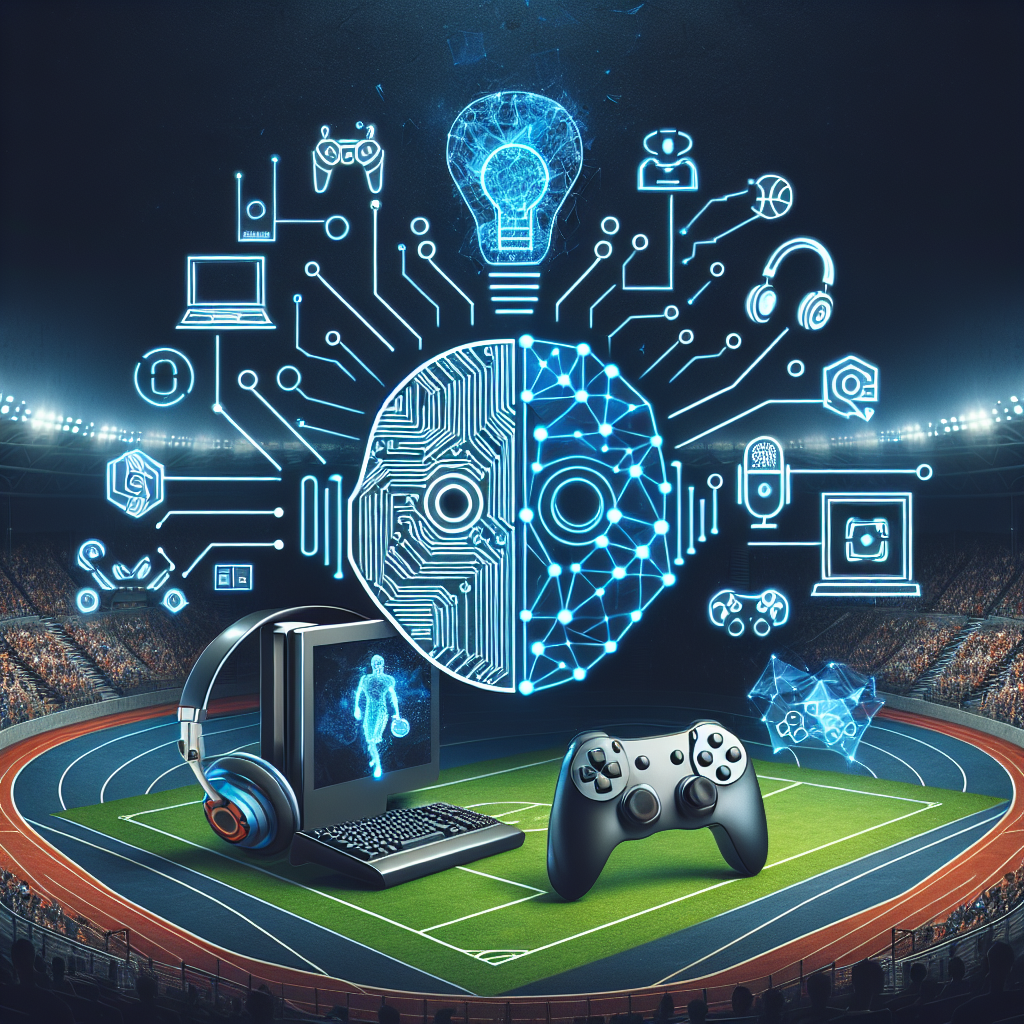In recent years, the sports industry has seen a significant rise in the popularity of eSports, with both traditional sports teams and tech companies investing heavily in the sector. This rise has been fueled in part by advances in artificial intelligence (AI) technology, which has revolutionized the way players train, compete, and interact with fans. In this article, we will explore the impact of AI on the rise of eSports in the sports industry and its implications for the future.
One of the key ways in which AI has influenced the growth of eSports is through the development of advanced training tools and analytics platforms. These tools use machine learning algorithms to analyze player performance, identify patterns, and provide personalized feedback to help players improve their skills. For example, platforms like Gosu.AI use AI to analyze gameplay data and provide insights on strategy, positioning, and decision-making in real-time. This allows players to fine-tune their techniques and gain a competitive edge over their opponents.
AI has also played a crucial role in enhancing the viewing experience for eSports fans. Companies like IBM have developed AI-powered solutions that can analyze gameplay footage and generate highlight reels, statistics, and insights for broadcasters and fans. This not only makes it easier for fans to follow the action but also adds a new layer of excitement and engagement to the viewing experience. In addition, AI-powered chatbots and virtual assistants can provide real-time updates, statistics, and commentary to help fans stay informed and engaged during live matches.
Furthermore, AI has enabled the development of virtual reality (VR) and augmented reality (AR) technologies that have revolutionized the way fans interact with eSports. VR headsets and AR apps allow fans to immerse themselves in the virtual world of eSports, experiencing matches from a player’s perspective and interacting with other fans in real-time. This has opened up new opportunities for fan engagement, sponsorships, and revenue streams for eSports organizations and teams.
Another area where AI is making a significant impact on eSports is in the realm of game design and development. Game developers are using AI algorithms to create more immersive, realistic, and challenging gameplay experiences that appeal to a wider audience. For example, AI-powered bots can simulate human behavior and adapt to players’ strategies, making games more dynamic and engaging. This has led to the rise of AI-driven eSports tournaments, where players compete against intelligent bots in increasingly complex and competitive environments.
In addition to its impact on training, viewing experience, fan engagement, and game development, AI is also revolutionizing the business side of eSports. Companies like Nielsen and Activision Blizzard are using AI to analyze market trends, audience demographics, and engagement metrics to help eSports organizations and sponsors make informed decisions about investments, partnerships, and marketing strategies. This data-driven approach is helping to drive the growth of eSports as a mainstream entertainment industry and attract new audiences and revenue streams.
Overall, the rise of eSports in the sports industry is a testament to the transformative power of AI technology. As AI continues to evolve and expand its capabilities, we can expect to see even more innovative applications and opportunities for eSports in the future. From advanced training tools and analytics platforms to immersive VR and AR experiences, AI is shaping the future of eSports and redefining the way we think about sports entertainment.
FAQs:
1. What is eSports?
eSports, short for electronic sports, refers to competitive video gaming where players and teams compete against each other in popular video games. eSports tournaments and leagues attract millions of viewers and participants worldwide, making it one of the fastest-growing industries in the sports and entertainment sector.
2. How is AI used in eSports?
AI is used in eSports for a variety of purposes, including training tools, analytics platforms, game design, viewer engagement, and business intelligence. AI algorithms analyze gameplay data, provide personalized feedback to players, generate highlight reels and statistics for broadcasters, create immersive VR and AR experiences for fans, and analyze market trends and audience demographics for sponsors and organizations.
3. What are some examples of AI-powered eSports tools?
Examples of AI-powered eSports tools include training platforms like Gosu.AI, analytics solutions like IBM Watson, VR and AR experiences like Oculus Rift and Pokémon GO, and data analytics platforms like Nielsen and Activision Blizzard. These tools use machine learning algorithms to analyze gameplay data, provide insights and feedback, enhance the viewing experience, and drive business decisions in the eSports industry.
4. How is AI impacting the future of eSports?
AI is revolutionizing the future of eSports by enabling advanced training tools, immersive viewing experiences, intelligent game design, data-driven decision-making, and new revenue streams for organizations and sponsors. As AI technology continues to evolve, we can expect to see even more innovative applications and opportunities for eSports in the years to come.
5. What are some challenges and opportunities for AI in eSports?
Some challenges for AI in eSports include data privacy concerns, ethical issues related to AI-driven game design, and the potential for bias in AI algorithms. However, there are also opportunities for AI to enhance player performance, fan engagement, revenue generation, and business intelligence in the eSports industry. By addressing these challenges and leveraging the opportunities, AI can help shape the future of eSports and redefine the sports entertainment landscape.

